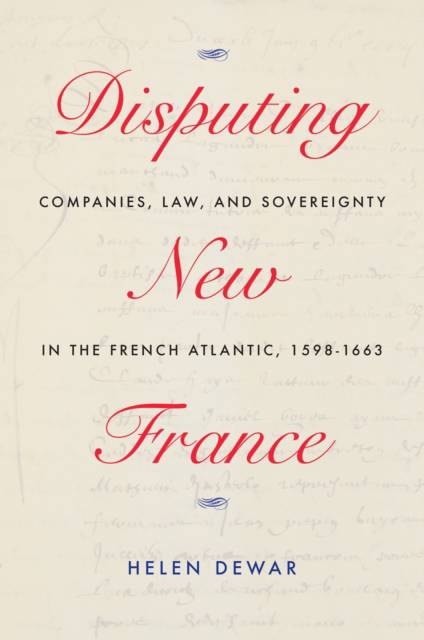
- Retrait gratuit dans votre magasin Club
- 7.000.000 titres dans notre catalogue
- Payer en toute sécurité
- Toujours un magasin près de chez vous
- Retrait gratuit dans votre magasin Club
- 7.000.0000 titres dans notre catalogue
- Payer en toute sécurité
- Toujours un magasin près de chez vous
Disputing New France
Companies, Law, and Sovereignty in the French Atlantic, 1598-1663 Volume 7
Helen Dewar
186,45 €
+ 372 points
Format
Description
From the early sixteenth century, thousands of fishermen-traders from Basque, Breton, and Norman ports crossed the Atlantic each year to engage in fishing, whaling, and fur trading, which they regarded as their customary right. In the seventeenth century these rights were challenged as France sought to establish an imperial presence in North America, granting trading privileges to certain individuals and companies to enforce its territorial and maritime claims. Bitter conflicts ensued, precipitating more than two dozen lawsuits in French courts over powers and privileges in New France.In Disputing New France Helen Dewar demonstrates that empire formation in New France and state formation in France were mutually constitutive. Through its exploration of legal suits among privileged trading companies, independent traders, viceroys, and missionaries, this book foregrounds the integral role of French courts in the historical construction of authority in New France and the fluid nature of legal, political, and commercial authority in France itself. State and empire formation converged in the struggle over sea power: control over New France was a means to consolidate maritime authority at home and supervise major Atlantic trade routes. The colony also became part of international experimentations with the chartered company, an innovative Dutch and English instrument adapted by the French to realize particular strategic, political, and maritime objectives.Tracing the developing tools of governance, privilege granting, and capital formation in New France, Disputing New France offers a novel conception of empire - one that is messy and contingent, responding to pressures from within and without, and deeply rooted in metropolitan affairs.
Spécifications
Parties prenantes
- Auteur(s) :
- Editeur:
Contenu
- Nombre de pages :
- 368
- Langue:
- Anglais
- Collection :
Caractéristiques
- EAN:
- 9780228008200
- Date de parution :
- 15-01-22
- Format:
- Livre relié
- Format numérique:
- Genaaid
- Dimensions :
- 152 mm x 229 mm
- Poids :
- 653 g

Les avis
Nous publions uniquement les avis qui respectent les conditions requises. Consultez nos conditions pour les avis.






